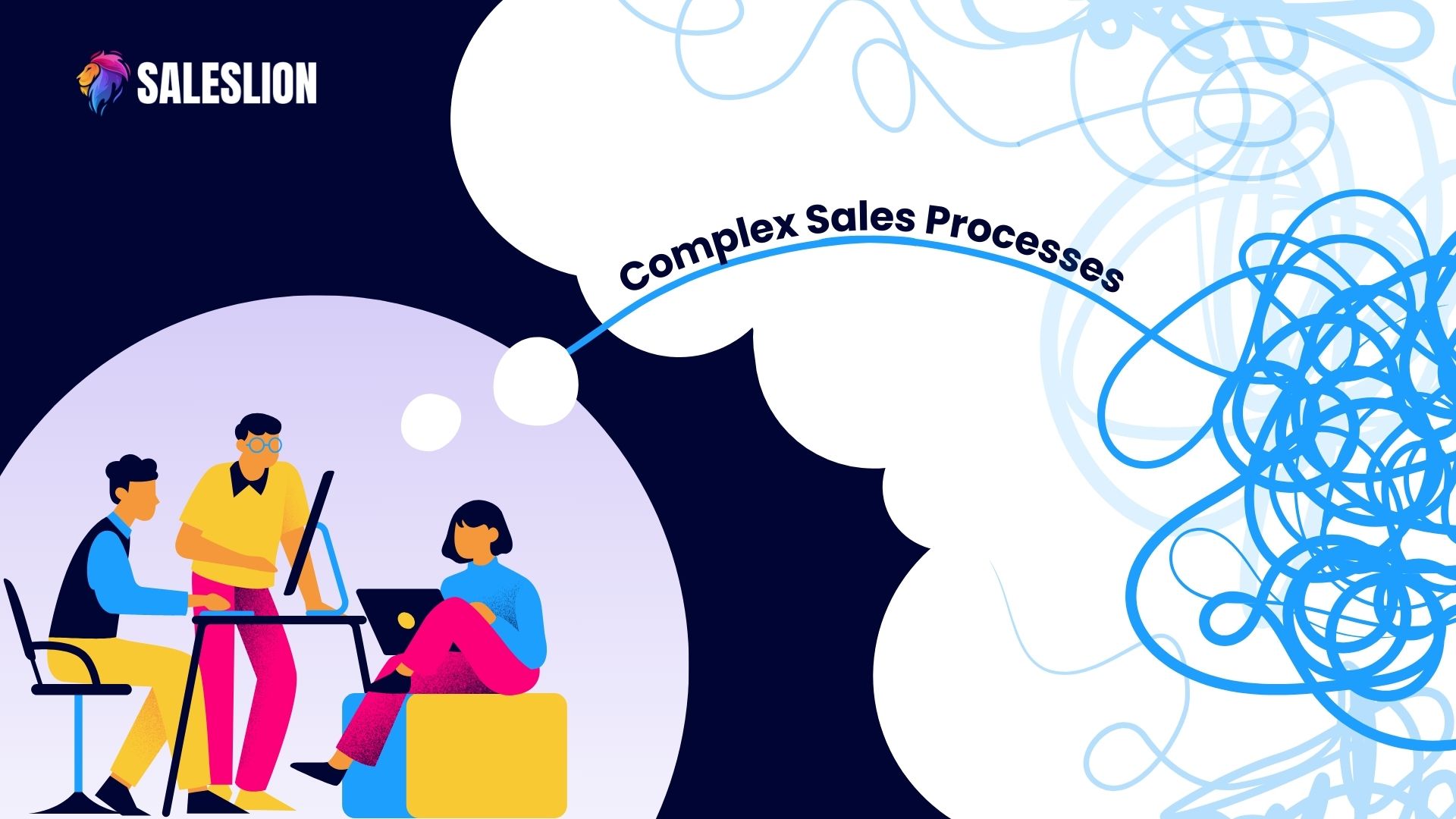Time is a precious commodity, and for B2B sales reps, it often feels like there’s never enough of it.
From prospecting to closing deals, it can be incredibly time-consuming to continuously juggle various tasks, making it challenging to allocate time efficiently.
Unfortunately enough, speed is also one of the most effective ways to build trusting relationships and close deals. And if you are struggling to manage menial tasks, then you won’t be able to quickly answer customer requests and resolve issues.
This article will explore how to improve your B2B sales time management and boost your sales effectiveness so that you can spend more time doing what you do best: closing deals.
Common Time Challenges of B2B Sales Reps
Sales reps in the B2B sector are often under immense pressure to meet or exceed their targets. They frequently grapple with numerous time-consuming activities, including lead generation, follow-ups, administrative tasks, customer relationship management, and skill development.
Moreover, the need to be constantly available for client calls and meetings can add to their time management difficulties.
Below are some of the 5 most common time challenges of B2B sales reps along with why each challenge can be detrimental to sales effectiveness.
Complex Sales Cycles

B2B sales cycles are often lengthy and intricate.
This can be detrimental to sales effectiveness because extended sales cycles consume valuable time and resources. The longer it takes to close a deal, the more opportunities there are for competitors to swoop in, straining your ability to focus on new prospects.
Lead Generation and Prospecting
Generating qualified leads is a common challenge for B2B sales reps.
If not addressed effectively, this challenge can also be detrimental because it leads to a lack of new opportunities.
Managing CRM and Data
Salespeople often spend a significant amount of time managing customer relationship management (CRM) systems and data.
These efforts have the potential to negatively impact the business because they take time away from customer interactions and selling activities.
Additionally, inaccurate or outdated data can lead to missed opportunities or poor customer experiences.
Balancing Existing Clients and New Prospects
If you are like most B2B sales reps, then you probably struggle with this challenge.
Effective B2B sales reps must strike a balance between servicing existing clients and pursuing new prospects. Focusing too much on current clients can hinder growth while neglecting them can lead to churn.
This challenge can be difficult to overcome as it requires careful time allocation and prioritization.
Administration and Reporting
The final, and perhaps most common and impactful, challenge that B2B sales reps face is time-consuming administration and reporting.

Salespeople are often burdened with administrative tasks such as preparing reports, updating sales forecasts, and attending internal meetings. This can be impactful because it diverts time and energy away from revenue-generating activities such as building relationships and closing deals.
Overemphasis on administrative work can result in missed sales opportunities and decreased productivity.
B2B Sales Effectiveness Strategies
To overcome the common time challenges above, sales reps should adopt effective time management strategies to stay on top of tasks, manage leads, and close deals efficiently.
From setting clear objectives to utilizing sales productivity tools, these sales effectiveness strategies can greatly improve sales productivity and optimize your company’s revenue as well.
Set Clear Goals and Priorities
The first goal, though rather intuitive, is to set clear goals and objectives. If you and your team do not have a clear direction and purpose, it is easy to get distracted by time-consuming tasks.
Setting clear goals and priorities helps sales reps focus on high-value tasks that directly contribute to achieving their sales targets.
Additionally, prioritizing tasks based on their urgency and importance ensures that critical activities receive the attention they deserve.
Create a Structured Daily Schedule
A structured daily schedule is another essential tool for managing time effectively.

By allocating specific time slots for different tasks, you can reduce distractions and maintain productivity throughout the day.
This can also help reduce the tendency to multitask and help you instead focus on producing quality work.
Remove Administrative Tasks
A study by InsideSales.com found that sales representatives spend only about 35% of their time actively selling. The remaining 65% is often dedicated to non-selling activities, including administrative work.
This is appalling.
Administrative tasks often consume a significant chunk of a sales rep’s time.
But by eliminating those menial tasks wherever possible, you can free up your time for more valuable activities, such as nurturing client relationships or strategizing for deal closures.
Set Aside Time for Skill Development
This is a crucial but often overlooked sales effectiveness strategy for improved time management: skill development.
In the rapidly evolving world of sales, continuous learning is key to staying relevant.
And by staying on top of recent trends and industry insights, you will be able to more effectively solve problems, adapt to changes, and sell your company’s products and services.
Sales reps should be intentional about dedicating some time each week to enhance their skills and knowledge. This will ultimately improve their sales performance.
Streamline Sales Calls

Sales calls can sometimes drag on for hours without yielding substantial results.
By planning these calls carefully and staying focused on the agenda, you can make them more productive and increase your sales effectiveness.
Utilize Sales Productivity Tools
Sales productivity tools are essential for sales teams, automating tasks, streamlining workflows, and offering data-driven insights.
They save time by automating data entry and lead management, shortening sales cycles, providing analytics for informed decisions, facilitating communication, and aiding time management.
Ultimately, these tools empower sales effectiveness, build better relationships, close deals faster, and drive overall success.
How Sales Enablement Software Can Improve Sales Effectiveness
And on the topic of how sales productivity tools can improve sales effectiveness, let’s explore some specific tools on the market that are proven to reduce time, improve productivity, and greatly assist sales reps with closing more deals, faster.
Automate, Automate, Automate
Sales automation software can take over routine tasks such as sending follow-up emails or scheduling meetings, freeing up sales reps to focus on more strategic activities.
Automation can also significantly enhance efficiency and reduce the risk of human error.
Two great examples of automation in action are CRM platforms Salesforce and Hubspot.
Salesforce Sales Cloud is a highly popular and comprehensive sales automation software solution.
It offers a range of features designed to streamline the sales process. With Salesforce Sales Cloud, sales teams can manage leads, opportunities, and customer relationships from a centralized platform.
Salesforce Sales Cloud is known for its scalability and can be tailored to fit the needs of businesses of all sizes.
HubSpot Sales Hub is a user-friendly sales automation platform that integrates seamlessly with HubSpot’s broader suite of marketing and customer relationship management (CRM) tools.
Sales Hub helps sales reps automate repetitive tasks such as email outreach, follow-ups, and lead tracking. It includes features like email templates, email tracking, meeting scheduling, and live chat integration.
HubSpot offers a free version of Sales Hub with limited features, making it accessible for businesses with varying budgets.
Sales Analytics
Sales analytics enhance sales effectiveness through data-driven insights, aiding performance evaluation, lead prioritization, forecasting, and more.
They empower businesses to adapt, allocate resources efficiently, and drive revenue growth in a competitive market.
Here are two impactful analytics platforms that sales teams can benefit from.
Microsoft Power BI is a robust solution that empowers businesses to transform their data into intricate and engaging visual presentations.
With Microsoft Power BI, users can effortlessly create reports and dashboards, simplifying the accessibility, distribution, and comprehension of data.
Its versatility shines through the availability of both mobile and desktop applications, enabling users to analyze data conveniently from any location.
Google Analytics is a powerful web analytics service offered by Google, designed to help website owners and marketers gain valuable insights into their online audience and website performance.
This tool allows users to track and analyze a wide range of data related to website traffic, user behavior, and conversions.
With Google Analytics, sales teams can monitor metrics such as page views, bounce rates, session durations, and traffic sources, providing a clear picture of how users interact with your website.
It also enables the creation of customized reports and dashboards, helping businesses make data-driven decisions to optimize their online presence, improve user experiences, and enhance overall digital marketing strategies.
Optimized Sales Processes
Digital sales rooms can optimize sales processes by providing a dedicated online space for deal discussions and document sharing.
They can facilitate collaboration between sales reps and clients, speeding up deal closures and enhancing customer satisfaction.
Saleslion provides a distinctive approach to sales enablement by integrating sales enablement software with expert sales consulting.
This innovative approach supports enterprises in not only increasing customer conversions but also refining their overall sales processes.
From improving the initial discovery phase to streamlining the closing process, Saleslion elevates the concept of sales enablement to a higher level.
In summary, effective time management is the key to success for sales reps. By implementing the strategies and tools discussed in this article, sales professionals can optimize their productivity and drive better results in their careers.